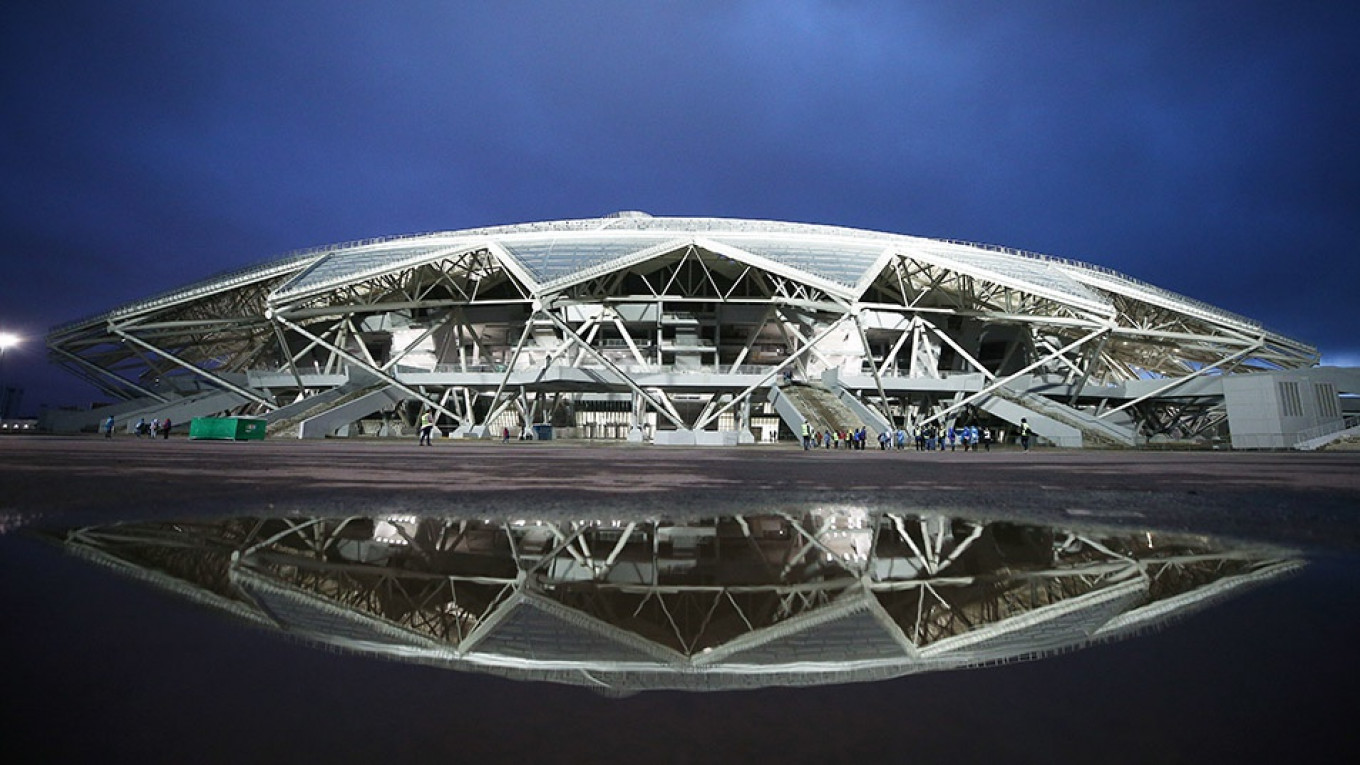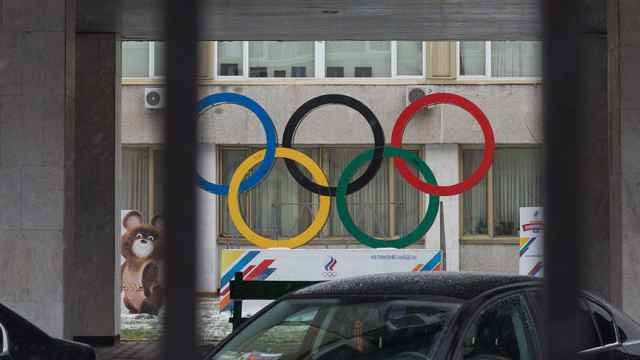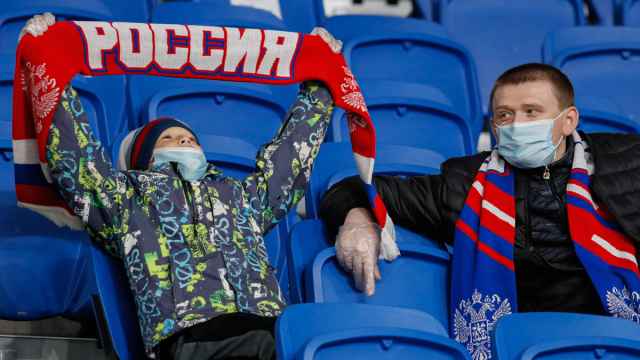Electricity was cut on Tuesday at a Russian stadium built for this year's football World Cup over unpaid bills, a power supplier in the city of Samara told Reuters, despite President Vladimir Putin saying he did not want such venues to fall into disuse.
Samaraenergo said the power supply was cut early on Tuesday because PSO Kazan, the company that built the 42,000-seat stadium, had not paid its electricity bills this year and had racked up 9,216,000 rubles ($137,600) in debt.
"We waited for a long time, we delayed the power cut," said Olga Perkova, a spokeswoman for Samaraenergo.
"Because PSO Kazan did not resolve the issue of paying its debt, a decision was made to cut electricity."
But after an internal meeting on Tuesday, Samaraenergo decided to turn the power back on because of upcoming Russian Premier League matches at the Samara Arena, even though it remains unclear when PSO Kazan will clear its debt, Perkova said.
PSO Kazan did not reply to a request for comment.
Krylia Sovetov Samara, a Russian Premier League club, will face Anzhi Makhachkala at the stadium on Saturday.
Krylia Sovetov did not reply to a request for comment, but wrote on Twitter on Tuesday afternoon that power had been turned back on.
The Russian Premier League referred questions on the use of World Cup stadiums to Sport-In, a state-run company that manages the venues built for the tournament.
When contacted on Tuesday, Sport-In said preparations for Saturday's match were underway as usual.
Authorities had scrambled in the run-up to the World Cup to finish work at the venue, following a series of construction delays.
The stadium hosted six tournament matches, including England's 2-0 quarter-final win against Sweden.
Russia hosted the World Cup in June and July in 12 stadiums spread across 11 cities, and the authorities have pledged that the newly-built venues will be put to good use.
Putin last month urged the government to ensure the infrastructure did not fall into disuse.
But Russia has run into problems at some of its new stadiums. A day after last month's final, heavy rain damaged the newly-built stadium in the southern city of Volgograd.
A Message from The Moscow Times:
Dear readers,
We are facing unprecedented challenges. Russia's Prosecutor General's Office has designated The Moscow Times as an "undesirable" organization, criminalizing our work and putting our staff at risk of prosecution. This follows our earlier unjust labeling as a "foreign agent."
These actions are direct attempts to silence independent journalism in Russia. The authorities claim our work "discredits the decisions of the Russian leadership." We see things differently: we strive to provide accurate, unbiased reporting on Russia.
We, the journalists of The Moscow Times, refuse to be silenced. But to continue our work, we need your help.
Your support, no matter how small, makes a world of difference. If you can, please support us monthly starting from just $2. It's quick to set up, and every contribution makes a significant impact.
By supporting The Moscow Times, you're defending open, independent journalism in the face of repression. Thank you for standing with us.
Remind me later.






